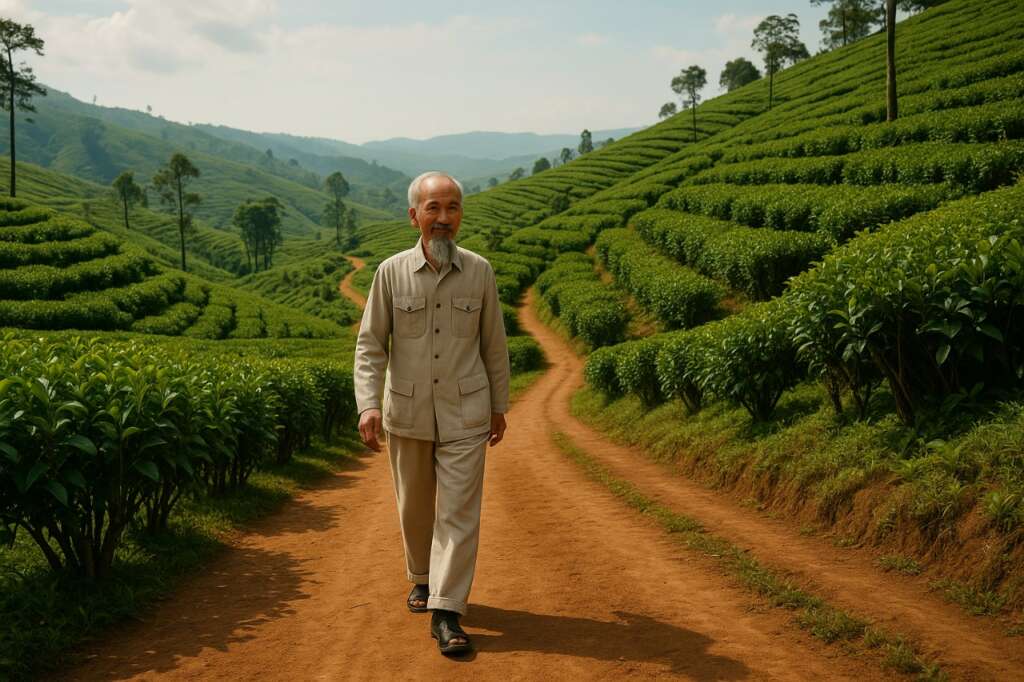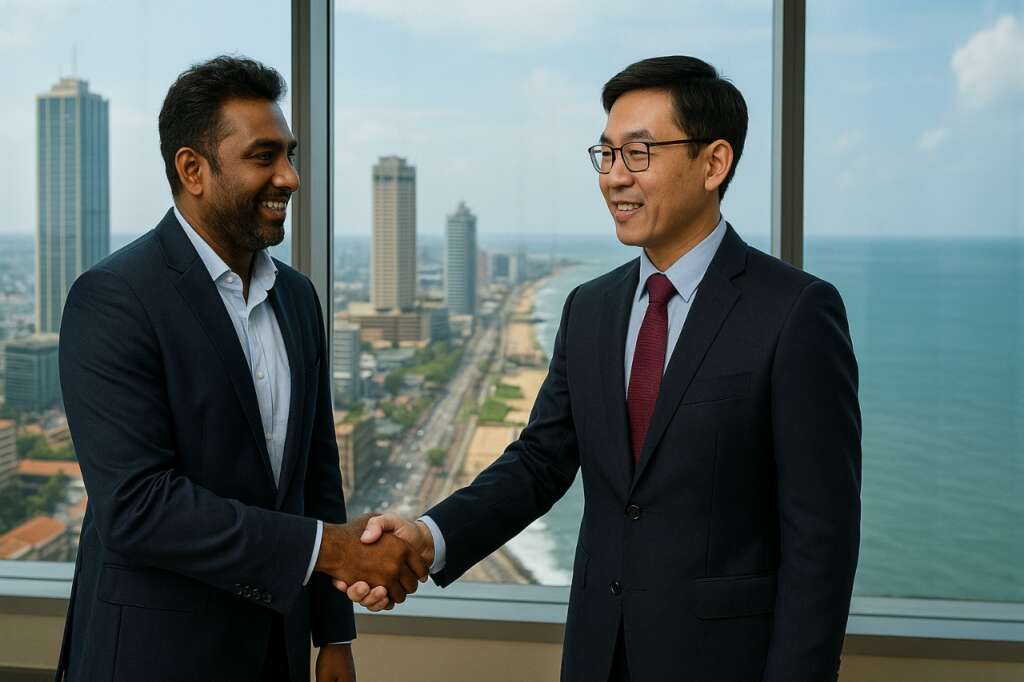
Historical Foundations of a Modern Alliance
The relationship between Sri Lanka and Vietnam represents one of Asia’s most enduring and mutually beneficial partnerships, with connections that run deeper than many might realize. Though formal diplomatic relations were established in July 1970, the cultural and historical affinities between our nations extend back centuries, with both countries sharing experiences as ancient civilizations, colonial subjects, and eventually, proud independent nations charting their own development paths.
The earliest recorded interactions between our lands date back to the maritime Silk Road era when Arab and Chinese traders created indirect commercial and cultural exchanges across the Indian Ocean. Buddhist connections formed another historical bridge, with both countries embracing Buddhist traditions that continue to influence our cultural landscapes today. These ancient connections laid the groundwork for the modern friendship that has flourished over the past five decades.
Diplomatic Solidarity Through Challenging Times
When formal diplomatic ties were established in 1970, both nations were navigating complex geopolitical environments. Sri Lanka’s principled stance of supporting Vietnam’s struggle for reunification and independence, despite pressure from global powers, created a foundation of trust and respect that continues to characterize our relationship. During the final years of the Vietnam War, Sri Lanka consistently advocated for a peaceful resolution that respected Vietnam’s sovereignty.
This diplomatic solidarity was reciprocated in later decades when Vietnam stood by Sri Lanka during its own challenging periods, supporting territorial integrity and the right to determine its own political future without external interference. This mutual respect for sovereignty and non-interference in internal affairs has become a cornerstone of our bilateral relationship.
The state visit of Vietnam’s President Nguyen Minh Triet to Sri Lanka in 2007 marked a significant milestone, elevating the relationship to new heights and establishing a comprehensive cooperation framework. Subsequent high-level exchanges, including Prime Minister Ranil Wickremesinghe’s visit to Hanoi in 2017 and numerous ministerial-level delegations, have continued to strengthen these bonds.
Economic Partnership: A Story of Growing Prosperity
Vietnam’s remarkable economic transformation under the Đổi Mới reforms offers perhaps the most valuable model for Sri Lanka’s own development aspirations. Since implementing these market-oriented reforms in 1986, Vietnam has achieved average annual GDP growth exceeding 6% for decades, transformed from a rice importer to the world’s second-largest exporter, and lifted millions from poverty.
Sri Lanka has benefited immensely from studying this development model. Numerous delegations comprising government officials, business leaders, and economic planners have visited Vietnam to understand the practical implementation of economic zones, agricultural modernization, and export-oriented manufacturing policies. The Vietnam-Sri Lanka Joint Trade Commission, established in 2015, has provided an institutional framework for transferring these valuable lessons.
Bilateral trade has seen impressive growth, expanding from a modest $47 million in 2005 to over $300 million in recent years. Sri Lankan exports to Vietnam include tea, rubber, textiles, spices, and coconut products, while Vietnamese exports to Sri Lanka encompass electronics, footwear, clothing, rice, and coffee. This complementary trade relationship has created jobs and economic opportunities in both countries.
Investment flows have also increased significantly, with Vietnamese companies investing in Sri Lanka’s agricultural processing, manufacturing, and tourism sectors. Meanwhile, Sri Lankan investments in Vietnam have focused on hospitality, tea production, and information technology services. The Sri Lanka-Vietnam Business Council, formed in 2018, has been instrumental in facilitating these investment partnerships and identifying new opportunities.
Cultural Exchange: The Ho Chi Minh Trail to Sri Lanka
Perhaps the most visible and impactful aspect of our bilateral relationship in recent years has been the “Ho Chi Minh Trail to Sri Lanka” initiative launched in 2018. This comprehensive cultural exchange program, named in honor of Vietnam’s revolutionary leader, has brought Vietnamese art, cuisine, music, and traditions directly to Sri Lankan communities across the island.
The annual cultural caravan has visited major Sri Lankan cities including Colombo, Kandy, Galle, and Jaffna, organizing Vietnamese cultural weeks that showcase everything from water puppetry performances to culinary demonstrations. These events have attracted thousands of Sri Lankans eager to learn about Vietnamese culture and have created lasting people-to-people connections beyond official diplomatic channels.
The reciprocal “Sri Lankan Cultural Trail to Vietnam” has brought traditional Kandyan dancers, tea ceremonies, and Buddhist cultural exchanges to Vietnamese cities, deepening mutual understanding and appreciation. These cultural initiatives have been particularly successful in engaging younger generations, ensuring that the friendship between our nations continues to strengthen with each passing year.
Educational partnerships have flourished alongside these cultural exchanges. The Vietnam-Sri Lanka Center for Buddhist Studies, established at the University of Kelaniya in 2019, has become a hub for academic collaboration and religious dialogue. Student exchange programs between the University of Colombo and Vietnam National University have enriched the educational experiences of students from both countries while creating networks of young professionals with deep cross-cultural understanding.
Tourism: Building Bridges Between Peoples

The tourism sector represents one of the most promising areas for future growth in our bilateral relationship. The establishment of direct flights between Colombo and Ho Chi Minh City in 2019 marked a turning point, reducing travel time and making both countries more accessible as tourist destinations for each other’s citizens.
Vietnamese visitors to Sri Lanka have been particularly drawn to our ancient Buddhist heritage sites, with specialized pilgrimage packages to Anuradhapura, Polonnaruwa, and Kandy seeing substantial growth. The “Buddhist Circuit” tour connecting sacred sites in both countries has become increasingly popular among spiritual travelers from both nations and international tourists.
Meanwhile, Sri Lankan travelers to Vietnam have been fascinated by the country’s dynamic urban centers, beautiful landscapes like Ha Long Bay and the Mekong Delta, and rich historical sites. Tourism authorities from both countries have collaborated on joint marketing initiatives, cross-training for hospitality staff, and shared sustainability standards, creating a model for regional tourism cooperation.
Development Cooperation and Knowledge Transfer
Beyond economic and cultural exchanges, Vietnam and Sri Lanka have established productive partnerships in development cooperation and technical assistance. Vietnam’s expertise in rice cultivation, aquaculture, and rural development has been particularly valuable for Sri Lanka’s agricultural sector.
The Vietnam-Sri Lanka Agricultural Technology Transfer Center, established in Anuradhapura in 2020, has become a hub for sharing Vietnamese techniques in sustainable rice production, integrated pest management, and climate-resilient farming with Sri Lankan farmers. This knowledge transfer has contributed to improved yields and increased resilience in Sri Lankan agriculture.
Similarly, Sri Lanka’s expertise in plantation agriculture, particularly tea cultivation and processing, has been shared with Vietnamese producers in the central highlands. This technical cooperation has helped Vietnamese tea growers improve quality standards and access premium international markets.
In the healthcare sector, Vietnamese traditional medicine practitioners have partnered with Sri Lankan Ayurvedic doctors to explore complementary approaches to holistic healthcare. Joint research programs between medical institutions in both countries have investigated the efficacy of traditional remedies, creating new opportunities for health tourism and pharmaceutical development.
Looking Forward: The Next Chapters in Our Partnership
As we look toward the future, the Sri Lanka-Vietnam Solidarity Association remains committed to deepening and expanding the bonds between our nations. Several promising initiatives are already underway:
- The planned establishment of a Sri Lanka-Vietnam Technology and Innovation Hub in Colombo’s Port City, focused on digital economy collaboration, fintech development, and smart city solutions.
- Expansion of educational partnerships to include vocational training exchanges, particularly in hospitality, information technology, and advanced manufacturing.
- Joint research initiatives on climate change adaptation and blue economy development, leveraging both countries’ extensive coastlines and vulnerability to sea-level rise.
- Enhanced defense and maritime security cooperation, including joint naval exercises and capacity building for disaster response.
- Coordination of positions in regional forums such as ASEAN-related mechanisms and the Indian Ocean Rim Association, creating opportunities for broader regional integration.
The remarkable journey of Sri Lanka-Vietnam relations demonstrates how two nations with different political systems, cultural backgrounds, and development paths can forge a productive partnership based on mutual respect and complementary strengths. As our association works to further strengthen these bonds, we draw inspiration from the wisdom of President Ho Chi Minh, who noted that “When the prison doors are opened, the real dragon will fly out.” Indeed, the full potential of our bilateral relationship is only beginning to emerge, promising even greater benefits for both nations in the decades ahead.
